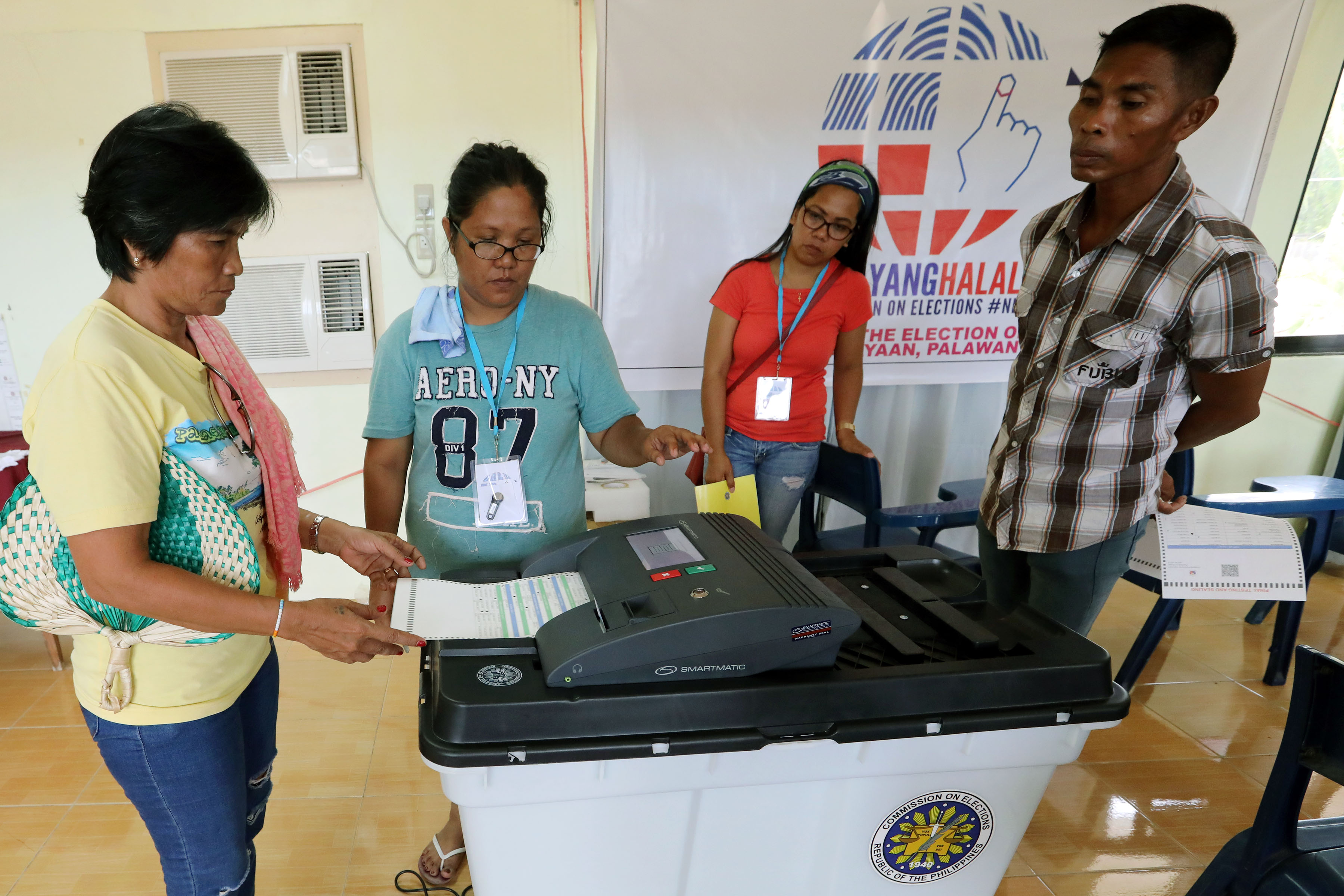News
SC junks pleas on source code review in vote counting machines

FILE: TESTING AND SEALING OF VCMs. A woman feeds her sample ballot to the vote-counting machine (VCM) during the testing and sealing of VCM in the municipality of Kalayaan, Pagasa Island in Palawan, in preparation for the 2019 mid-term elections on May 13. Comelec officials were present during the event. (PNA photo by Joey O. Razon)
MANILA — The Supreme Court (SC) has turned down petitions, which seek to compel the Commission on Elections (Comelec) to allow groups to open and review the source code in the vote counting machines (VCMs) as provided for under Republic Act 9369 or the Election Modernization Act of 1997.
In an banc decision dated April 30 and released Monday, the High Court likewise denied the motion of the petitioners — Sen. Richard Gordon, the Bagumbayan-NVP Movement Inc. and Tanggulang Demokrasya — to hold former Comelec chair Sixto Brilliantes Jr. in contempt for his failure to comply with his commitments to the Court during the May 8, 2013 oral arguments to, among others, make the source code available for review and to grant more time to the parties to comply with the requirements to do so.
“In deciding that Chairman Brillantes is not liable for indirect contempt, the Court focuses solely on the undertakings that were directly promised to the Court, not those which the petitioner feels were promised,” the SC added.
The High Court dismissed on the ground of “being moot and academic” while their plea to cite Brilliantes for contempt was junked for “utter lack of merit.”
Likewise, the Court denied the plea of the petitioners to compel the Comelec to use digital electronic election returns and provide for the basic security safeguards, which include the source code review, vote verification, and random audit in compliance with RA 9369.
The SC said it took judicial notice of Comelec Resolution 10423 promulgated on Sept. 21, 2018, modifying the qualifications for the source code review for the 2019 elections, as well as providing for several steps before an interested party may actually get to review the source code.
“As this Resolution 10423 governs the conduct of the [2019] elections and any automated election from here on unless it, itself, is superseded by another, the cause of action of the petitioners has ceased to exist,” the SC said in a decision penned by Associate Justice Andres Reyes Jr.
The SC also noted that the recent promulgation of Resolution 10458 (General Instructions for the conduct of Random Manual Audit relative to the May 13, 2019 Automated National and Local Elections and subsequent elections thereafter), on December 5, 2018, Resolution 10460, or the General Instructions on the constitution, composition and appointment of the Electoral Board; use of the Vote Counting Machines; the process of testing and sealing of the Vote Counting Machines; and the voting, counting and transmission of election results, on December 6, 2018, and Resolution 10487, or the VCM Operation procedures for (A) Final Testing and Sealing (FTS) (B) Election Day and (C) Transmission of Election Results in connection with the May 13, 2019 National and Local Elections, on Jan. 23, 2019 (Resolution 10487, in particular, supplanted Resolution 10460) have made the petitions moot and academic.
“The promulgation of these removes the justiciable controversy existing in the consolidated petitions especially as it is these resolutions that now govern the conduct of the specific items being assailed,” the ruling added.
The SC further held that the electronic transmission through the method promulgated by the Comelec is valid under the law, as it cited the Rules on Electronic Evidence.





















